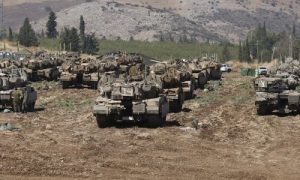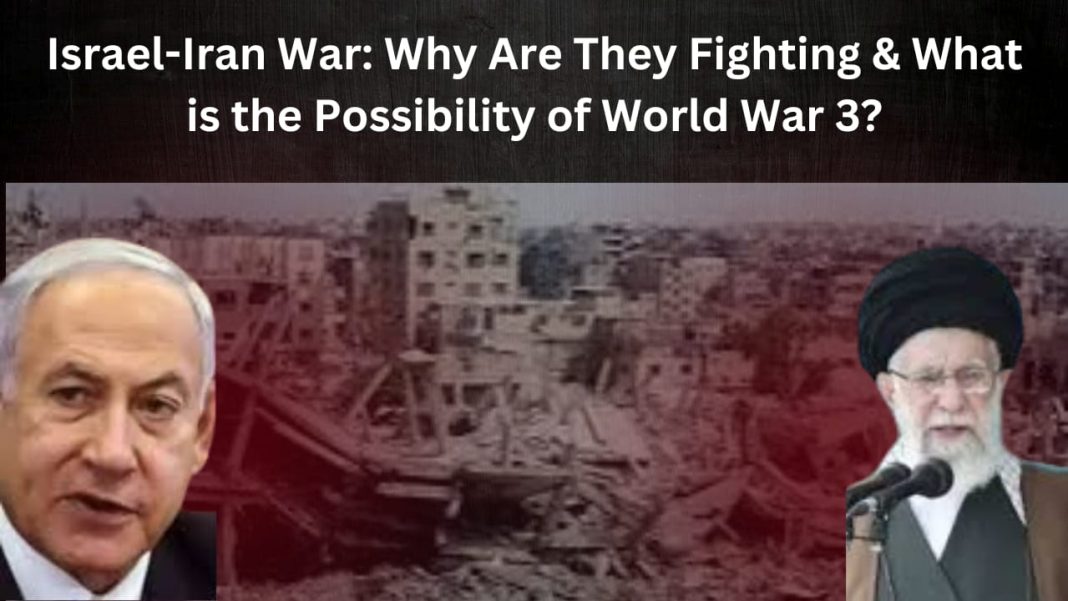Digital News Desk:
The ongoing conflict between Israel and Iran is one of the most dangerous flashpoints in the Middle East, involving deeply entrenched ideological, geopolitical, and military factors. Over the years, tensions between these two regional powers have escalated, raising concerns that the conflict could spill over into a broader war, potentially involving other global powers. As the situation intensifies, some analysts warn of a possible prelude to World War III. To understand the complexity of the Israel-Iran conflict and the risks it poses, it is essential to explore the causes behind their enmity and assess the potential for global escalation.
Why Are Israel and Iran Fighting?
The hostilities between Israel and Iran are rooted in a combination of religious, ideological, and geopolitical factors, evolving over decades of mistrust and opposition.
- Religious and Ideological Divide
Iran, a predominantly Shia Muslim theocracy, has positioned itself as the leader of the Islamic world, particularly championing the rights of Palestinians. Since the 1979 Islamic Revolution, Iran’s leadership has vocally opposed the existence of Israel, often calling for its destruction. Iran views Israel as an illegitimate, Western-imposed state in the heart of the Muslim world.
Israel, on the other hand, is a Jewish state with strong ties to the West, especially the United States. It perceives Iran as its greatest existential threat due to Iran’s support for militant groups like Hezbollah in Lebanon and Hamas in Gaza, which regularly engage in hostilities against Israel. The anti-Israel rhetoric from Iranian leaders, combined with Iran’s support for groups that actively attack Israeli targets, exacerbates the conflict.
- Geopolitical Rivalry
Iran and Israel are also regional rivals, vying for influence in the broader Middle East. Iran has sought to expand its regional dominance through proxy forces, especially in Syria, Iraq, Yemen, and Lebanon, challenging Israeli security. Iran’s involvement in the Syrian Civil War, where it has stationed forces near Israel’s borders, has led to frequent Israeli airstrikes on Iranian military installations in Syria.
On the other side, Israel has fostered alliances with Sunni Arab states such as Saudi Arabia and the United Arab Emirates, which also view Iran as a threat. The Abraham Accords, a series of normalization agreements between Israel and several Arab nations, have further isolated Iran and solidified a regional anti-Iran bloc.
- Nuclear Tensions
A major factor in the Israel-Iran conflict is Iran’s nuclear program. Israel fears that if Iran acquires nuclear weapons, it could shift the balance of power in the region and pose an existential threat. Despite Iran’s claims that its nuclear program is for peaceful purposes, Israel believes Tehran is pursuing nuclear weapons. Over the years, Israel has launched covert operations, including the assassination of Iranian nuclear scientists and cyberattacks like the Stuxnet virus, to slow down Iran’s nuclear development.
In 2015, the Iran nuclear deal (JCPOA) sought to curb Iran’s nuclear ambitions in exchange for sanctions relief, but Israel opposed the deal, arguing that it was too lenient. The U.S. withdrawal from the deal in 2018 under President Donald Trump, combined with Iran’s subsequent breaches of the agreement, has fueled tensions further.

What Is the Possibility of World War 3?
The possibility of the Israel-Iran conflict escalating into a global war is a concern shared by many geopolitical analysts. Several factors contribute to the fear that this regional conflict could ignite a broader confrontation.
- Involvement of Global Powers
The Israel-Iran conflict does not exist in isolation; it involves global powers like the United States and Russia. The U.S. is Israel’s primary ally and has consistently provided military and financial support. Washington has also taken a hardline stance against Iran, especially under the Trump administration, which withdrew from the Iran nuclear deal and imposed strict sanctions. Under President Joe Biden, the U.S. has sought to revive the deal, but tensions remain high.
On the other hand, Russia, which has a military presence in Syria and close ties with Iran, could be drawn into a conflict if hostilities escalate. Russia has supported Iranian and Syrian government forces during the Syrian Civil War, making the situation more volatile. Any direct confrontation between U.S.-backed Israeli forces and Iranian forces in Syria could quickly escalate into a proxy war involving global superpowers.
- Proxy Wars and Regional Instability
The Middle East is already fraught with instability, and the Israel-Iran conflict is entangled with other regional tensions. Iran’s support for Hezbollah in Lebanon and Shia militias in Iraq could lead to multi-front wars involving Israeli forces. Hezbollah’s vast missile arsenal is a significant threat to Israel, and any major conflict could quickly spread beyond Israeli and Iranian borders, engulfing neighboring countries.
Saudi Arabia and the Gulf states, which have aligned with Israel against Iran, could also be drawn into the conflict. Any direct confrontation between Israel and Iran could ignite broader regional wars, further destabilizing the Middle East and involving more global players.
- Nuclear Risks
Perhaps the most alarming factor is the risk of nuclear escalation. While Israel is believed to possess nuclear weapons (though it has never officially confirmed this), Iran’s potential pursuit of nuclear arms creates a highly volatile situation. The threat of a nuclear-armed Iran could lead to preemptive strikes by Israel, drawing in other powers and increasing the likelihood of a global confrontation.
Conclusion
The Israel-Iran conflict is a complex and deeply entrenched struggle that combines religious, ideological, and geopolitical elements. While it has primarily been a regional conflict, the involvement of global powers, the risk of proxy wars, and the nuclear dimension significantly raise the stakes. The possibility of the conflict escalating into World War III, while not inevitable, cannot be ruled out. Diplomatic efforts to de-escalate tensions, prevent Iran from acquiring nuclear weapons, and stabilize the region will be crucial in preventing a broader war with catastrophic global consequences.
You May Also Read: What is Halloween? The Origins, Traditions, and Why We Celebrate Today








